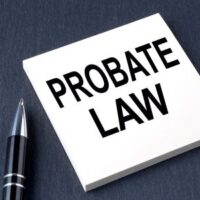How To Handle Creditor Claims In Florida Probate Cases

There is a common misconception that a person’s debts will just go away when they pass on, but this is a myth under the collection laws in Florida and all other US states. The Consumer Financial Protection Bureau points out that a person’s legal and financial obligations shift to the estate at death, just as the decedent’s assets become part of the estate. Surviving family members would not be responsible for paying these debts out of their own pockets, but creditor claims do have an impact on estate administration.
If you were named as executor in a will or appointed as personal representative by a probate court, you could encounter issues with creditor claims. The debts of the decedent could also affect your interests as a beneficiary or heir, so consulting with a Dade City probate lawyer is essential. You can also review some basics about creditor claims in estate administration.
Required Notices: One of the first tasks for a personal representative is collecting all information on the deceased person’s assets and debts to get the big picture of the estate. The decedent probably had paperwork or other records about amounts for mortgages, household bills, credit cards, auto loans, and similar debts. These documents make a creditor reasonably ascertainable, and the personal representative must serve notices to ensure they are aware of estate administration.
In addition, the estate must publish a notice to creditors as provided under probate laws. This requirement is for creditors who are not reasonably ascertainable, but which may still have valid claims against the estate.
Payment of Verified Creditor Claims: The estate is responsible for paying claims that are known and supported by evidence about the debt. Therefore, when filing a claim, a creditor must include all documentation and relevant details. Keep in mind that the estate is not liable for debts related to jointly held assets that are not part of the probate estate.
Objecting to Claims: The estate is the debtor for creditor claims, so the estate administrator can contest the amount, validity, or other details. The following factors may be grounds for objecting to a claim:
- Unlawful debt collection practices by the creditor;
- Lack of proper evidence; or,
- The debt is linked to a non-probate asset.
A contested creditor claim may go to a hearing before the probate court, in which the judge will rule on whether the estate is liable.
Insufficient Estate Assets: Whether or not the decedent had a will, the verified claims of creditors take precedence over distributions from the estate. The shares of heirs and beneficiaries may be reduced if the personal representative needs the funds to pay debts.
Speak to a Florida Probate and Estate Administration Attorney Today
Most decedent’s estates will involve creditor claims, so different parties may have to assess how debts of the estate impact their interests. Our team at The Law Office of Laurie R. Chane can advise you on the legal implications, so please call 352-567-0055 or visit our website. We can set up a consultation at our Dade City location to review your situation and discuss details.
Source:
consumerfinance.gov/ask-cfpb/does-a-persons-debt-go-away-when-they-die-en-1463/#:~:text=No%2C%20when%20someone%20dies%20owing,generally%20will%20not%20be%20paid

